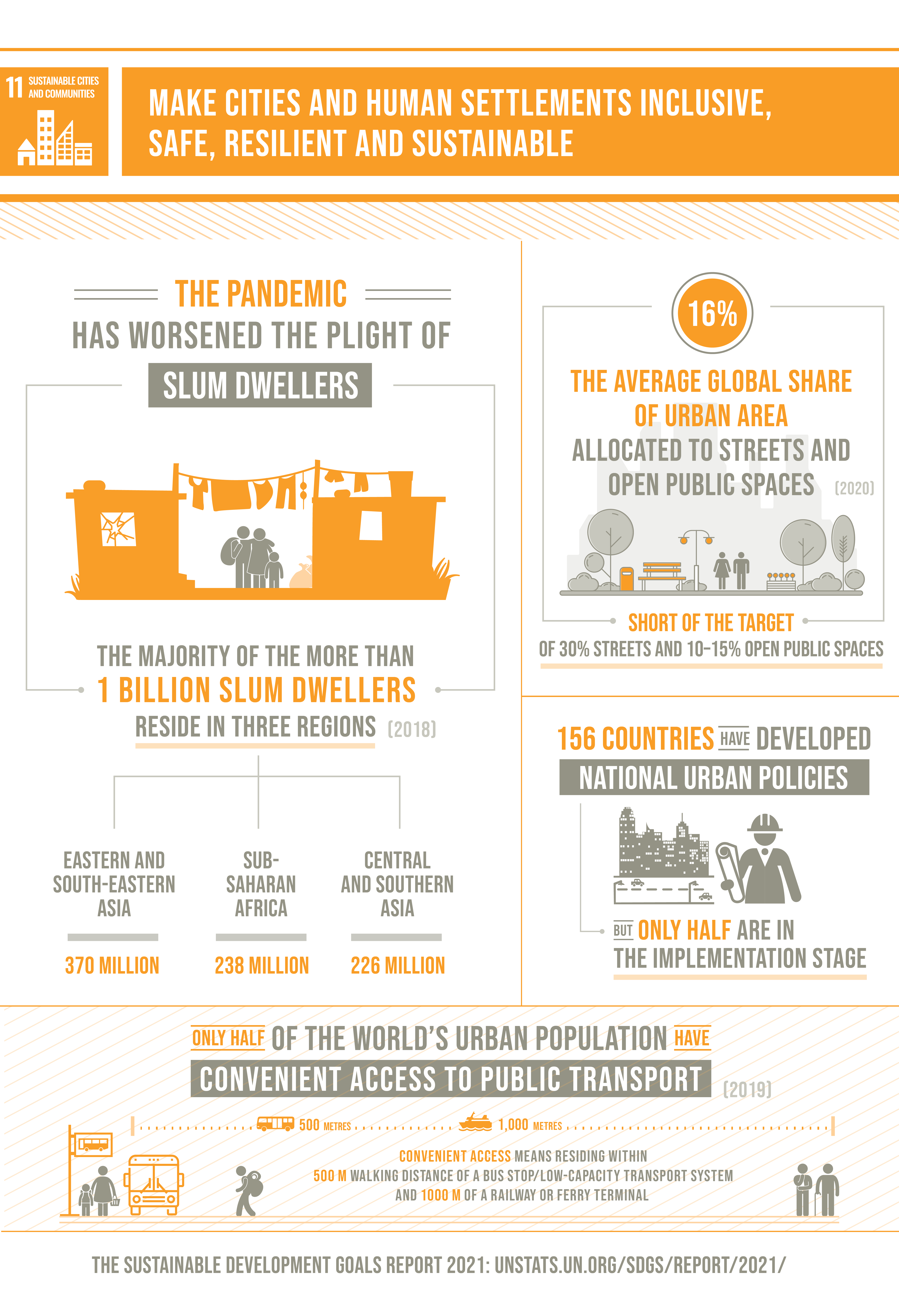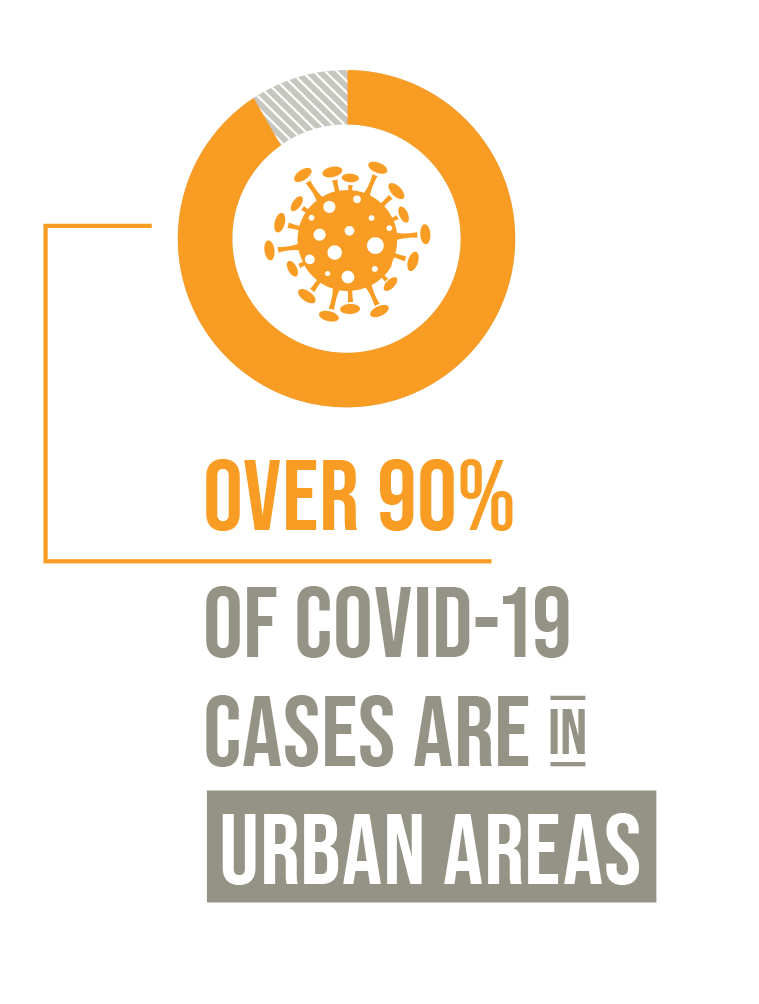SUSTAINABLE DEVELOPMENT GOALS

Sustainable Development Goals (SDGs)
A collection of 17 interlinked global goals designed to be a “blueprint to achieve a better and more sustainable future for all”. The SDGs were set up in 2015 by the United Nations General Assembly (UN-GA) and are intended to be achieved by 2030. They are included in an UN-GA Resolution called the 2030 Agenda or what is colloquially known as Agenda 2030. The SDGs were developed in the Post-2015 Development Agenda as the future global development framework to succeed the Millennium Development Goals which ended in 2015.
The 17 SDGs are: (1) No Poverty, (2) Zero Hunger, (3) Good Health and Well-being, (4) Quality Education, (5) Gender Equality, (6) Clean Water and Sanitation, (7) Affordable and Clean Energy, (8) Decent Work and Economic Growth, (9) Industry, Innovation and Infrastructure, (10) Reduced Inequality, (11) Sustainable Cities and Communities, (12) Responsible Consumption and Production, (13) Climate Action, (14) Life Below Water, (15) Life On Land, (16) Peace, Justice, and Strong Institutions, (17) Partnerships for the Goals.
Though the goals are broad and interdependent, two years later (6 July 2017) the SDGs were made more “actionable” by a UN Resolution adopted by the General Assembly. The resolution identifies specific targets for each goal, along with indicators that are being used to measure progress toward each target. The year by which the target is meant to be achieved is usually between 2020 and 2030. For some of the targets, no end date is given.
Our Vision
“Be a Leading Company In Creating New Architectural & Engineering Designs, In Developing Innovative Projects, In Providing Related Exceptional Products And Services In United Kingdom & Beyond”
Our Mission
“ Provide End Users With Unique Experience At The Right Time And The Right Place With Highest Records Of Quality, And Reliability, While Generating Enduring Value To Our Clients And Shareholder”
LAND-USE TO POPULATION RATIO BY 2030
LAND-USE
POPULATION
ENERGY CONS.
EMISSIONS
The world population is in a very fast growth by which is reaching high numbers of migration from rural areas toward the cities. Cities are inclusive in most cases by which all major needs and requirements are found, but with a high number, cities nowadays that consume only 3% of planet land, are estimated to reach 60% population by 2030 as studies show. With this rising number, cities are being condensed and consuming most of the energy reaching a peak of 80%, and have the highest emission rates reaching a 60% that generating pollution.
Urban slums are formed all over the world around the big cities where people are lacking the basic needs to have a sufficient way of living (access to clean water and sanitation, affordable housing, affordable transportation respecting all those with vulnerable situations, etc.).
To face the impact that has bet formed due to the dense population within the cities, the United Nations has set a 15 years goal by which it targets 2030 to have more sustainable cities and communities as part of the 2030 Agenda.
Significantly, the world has been witnessing well progress in reaching those goals by which developed countries have the better tools to achieve and the most need to achieve a sustainable city and environment to raise the level of development within the country. Implementing policies and governmental serious decisions is the way toward the achievement of this goal. For less developed countries that lack the basic tool that allows reaching the target intended, funding and investments in that sector are taking place to help.
We all have to be part to achieve as much as we can in the field, we play a role to reach a better city quality and better life settlement for all.
OVERVIEW

On 25 September 2015, the 193 countries of the UN General Assembly adopted the 2030 Development Agenda titled “Transforming our world: the 2030 Agenda for Sustainable Development”. This agenda has 92 paragraphs. Paragraph 59 outlines the 17 Sustainable Development Goals and the associated 169 targets and 232 indicators
1. No Poverty
2. Zero Hunger
3. Good health and well-being
4. Quality education
5. Clean Water and Sanitation
6. Gender equality
7. Affordable and Clean Energy
8. Decent Work and Economic Land
9. Industry, Innovation, and Infrastructure
10. Reducing Inequality
11. Sustainable cities and Communities
12. Responsible Consumption and Production
13. Climate action
14. Life Below Water
15. Life on Land
16. Peace, Justice, and Strong Institutions
17. Partnerships for the Goals

UN SUSTAINABLE DEVELOPMENT GOAL 11
Sustainable Development Goal 11 (SDG 11 or Global Goal 11) is about cities and communities going sustainable. SDG11 refers to goal number 11 in the agenda 2030 by the United Nations General Assembly that was set in 2015 as part of the 15 years strategy for the planet.
By achieving goal number 11, cities are to be secure, inclusive, resilient, and sustainable. Progress is a balance between social, economic, and environmental which areas are interlinked by the outcomes and affected by the aspects generated.
As part of the goal 11 strategy, the aim is to invest in the public transport system, enhancing public and green spaces. Due to the excessive population that is found in cities, major actions have to be done to save both the planet and society.
To achieve SDG 11, UNGA has set 10 targets to be achieved. 15 indicators are set to measure the progress of achieving the 10 targets for goal 11. The outcome targets: safe and affordable housing, affording and sustainable transport system, protecting world heritage both cultural and natural, sustainable urbanization, reducing impact generated from cities on the environment, reducing natural disaster effects on the planet, and providing access to public and green spaces.


CHALLENGES & THE IMPACT OF COVID-19

As the COVID-19 pandemic carves its dark entry into the history of humankind, causing serious illness and death, and upending daily life as we know it, UN DESA is supporting the world to contain the calamity and emerge from it more resilient and united. As the pandemic challenges national health systems, shutters businesses large and small, and confines millions to their homes, it leaves the society’s most vulnerable groups exposed to its most destructive effects. UN DESA experts continue to closely monitor the economic, financial, and social impacts of the crisis and are prepared to advise the UN Secretary-General and help the Member States navigate the policy choices ahead in a way that leaves no one behind.
Responding to COVID-19 and Recovering Better is a compilation volume of UN DESA’s special policy brief series on the economic and social impact of COVID-19, which aims to complement and support the Secretary-General’s initiatives in response to COVID-19. It presents detailed analysis and solid evidence needed for effective decision-making on several critical social and economic issues – including designing inclusive stimulus packages; preventing a global debt crisis; supporting countries in special situations; protecting the most vulnerable groups of people; strengthening the role of science, technology and institutions for an effective response; and working together to build back better and achieve the 2030 Agenda for Sustainable Development.



